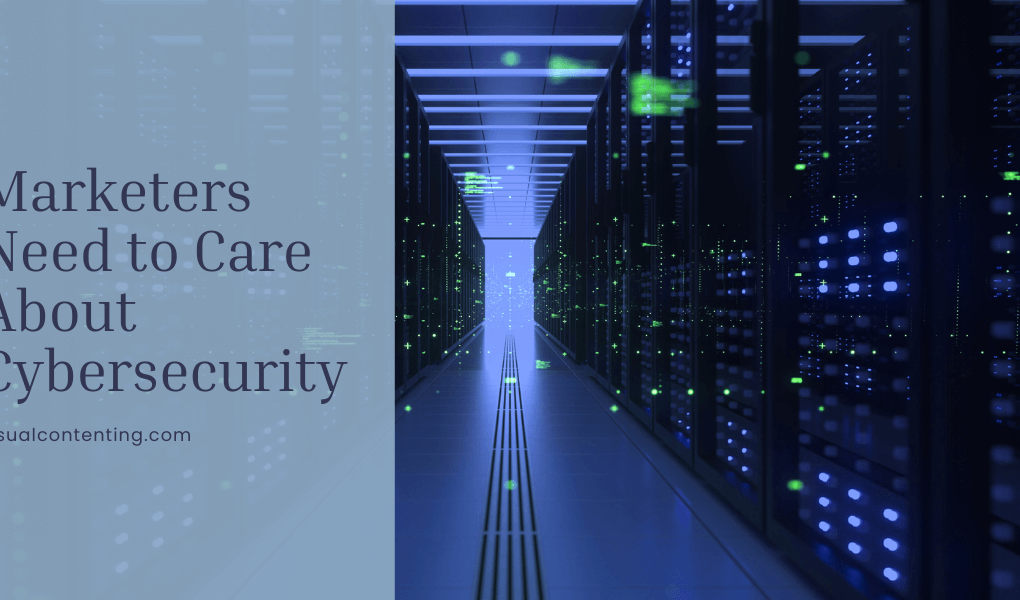Marketers are a core part of businesses’ cybersecurity initiatives. Many people may see security as an IT department concern. However, marketers face several unique cybersecurity risks and play a key role in preventing and responding to cyber incidents.
Top Cybersecurity Risks in Marketing
Marketers face a few unique cybersecurity risks that can impact them, their colleagues and their customers. Understanding these risks is crucial for mitigating them and protecting marketing data.
1. Remote CRM and DMP Hacking
CRMs and DMPs are popular in marketing today, but these helpful tools can also be a security risk. Compiling large amounts of customer data in one platform is convenient for marketers. However, this makes CRMs a highly appealing target for hackers. If they successfully breach a CRM or DMP, they can capture a large store of customer information in one attack.
Hackers don’t need access to a marketer’s office or personal computer to accomplish this, either. There are plenty of tools available today that allow a hacker to remotely break into CRMs and DMPs, such as phishing attacks.
One such attack took place in 2021 when USCellular experienced a CRM data breach after an employee was tricked into downloading malicious software. Marketers are just as vulnerable to this type of attack as any other employee. Since the marketing department is responsible for managing their CRM or DMP data, they share some of the responsibility of protecting it.
2. DDoS Attacks
Distributed denial of service, also known as DDoS, is a type of cyberattack that attempts to wreak havoc by overwhelming the victim’s server or network. DDoS attacks can be a big issue for marketers because they can shut down entire websites and ruin the customer experience.
Many DDoS attacks are carried out by amateur hackers, but they can still be a major threat. While a network is down due to DDoS, it can create opportunities for hackers to steal or alter data.
Most DDoS attacks are launched using botnets, which are huge networks of computers infected with malware. That means a DDoS attack can also be a sign that an organization was previously hit by malware, as well.
3. Phishing and Scams
Phishing and scams are among the most common risks in the online world today. There were over 255 million phishing attacks reported in 2022, 76% of which were credential theft attacks. Phishing has become the primary method for gaining unauthorized access to devices and systems for the purpose of launching a cyberattack.
Many phishing attacks have no specific target, taking the form of mass spam emails or scam ads on popular websites. However, businesses can be targeted by hackers, putting marketers at a higher-than-average risk of phishing. Hackers will usually use this type of attack to initially gain access to a business’s network, opening the door for them to steal data.
4. Insider Attacks
While insider attacks are relatively uncommon, they can be a big risk for businesses. An insider attack is usually a form of retribution for a perceived wrong, such as being fired or passed up for a promotion. In retaliation, the affected employee may launch a cyberattack of their own or intentionally give a hacker access to their employee credentials.
Insider attacks can be particularly difficult for businesses to spot or anticipate because unauthorized access may be disguised easily. If a hacker is using a legitimate employee account and didn’t have to break into it, their activity is less likely to show up as suspicious. They can use this opportunity to steal customer data, such as through a CRM platform.
5. Remote Work Vulnerabilities
Finally, remote work poses a few cybersecurity risks marketers and businesses at large should be aware of. While remote work has many benefits, it does remove the protection of an office’s firewall and private network. Employees may not have a secure home network and may be working remotely from unsecured devices.
These risks can make remote workers particularly vulnerable to cyberattacks. For example, hackers may be able to gain access to their devices or data through unsecured Wi-Fi. As a result, marketers need to be careful about which employees have access to marketing data and how those employees are working outside the office.
Why Marketers Need Strong Cybersecurity
When many people think of cybersecurity, they often think of the IT department. Why should marketers specifically care about security risks? Isn’t it the job of IT personnel to protect businesses’ data? This may be the case, but there are a few important reasons for marketers to take on more responsibility for preventing cyberattacks.
For example, cybersecurity is a major concern for marketers from a PR standpoint. If a business suffers a cyberattack, it can have a detrimental impact on sales and reputation. Target’s sales dropped 46% after a 2013 data breach, a clear warning to other businesses.
The reality is that customers don’t care why a business failed to prevent a cyberattack. A single incident is enough to break consumer trust, regardless of who is at fault. So, marketers need to make sure they aren’t putting their business, its reputation and its customers at risk through poor security practices.
Furthermore, data breaches put customers’ safety at risk. The customer experience is at the core of the marketing department. Improving cybersecurity is in the customers’ best interest, so it should be a central concern for marketers. This is especially true given the fact that CRM platforms contain so much customer data in one place. This data can make marketing departments prime targets for hackers.
Cybersecurity noncompliance can also create legal issues for businesses. One such case occurred in 2015 when Aerojet failed to meet federal cybersecurity regulations in a NASA contract. Falling short of cybersecurity regulations can expose any business to lawsuits and legal backlash, which also creates bad PR.
How Marketers Can Improve Cybersecurity Resilience
What can marketers do to strengthen their cybersecurity and protect their customers? Working with the IT department is an important first step. IT professionals can help facilitate the technical aspects of marketing security measures. There are a few key measures to consider.
Prioritize Identity and Access Management
Identity and access management is crucial for preventing unauthorized access to CRM platforms and DMPs. Hackers and inside attackers can easily abuse weak access management systems. To prevent this, consider using a zero-trust or least-privilege strategy.
Zero-trust cybersecurity is based on the principle of treating all activity as potentially suspicious. Surveys show that at least 55% of organizations are using this security strategy today.
To implement zero-trust security, don’t allow users to stay logged in between sessions. Implement login technologies like multi-factor authentication and require complex, regularly-updated passwords. Additionally, change permissions on user accounts so every employee only has access to the minimum amount of data necessary.
Utilize Network Segmentation
Network segmentation is a great way to protect CRM and DMP data. It involves splitting a business’s network into isolated silos that can’t be accessed between one another. That way, if a hacker gains access to one segment of the network, the others will still be safe.
Network segmentation allows businesses to implement high-level security for marketing data without inhibiting efficient daily activity on the rest of the network. While no network can be completely immune to cyberattacks, this extra layer of protection can strengthen defenses around sensitive customer data as much as possible.
Boost Knowledge and Awareness
Every member of the marketing team plays a role in preventing cyberattacks. Improving cybersecurity knowledge and awareness can go a long way toward reducing the risk of a data breach.
For example, marketers can run phishing awareness training to teach their co-workers how to spot phishing messages and malicious content. Steps like this give every employee in the marketing department the tools to help protect customers and the business itself. Phishing awareness is especially important today since AI is making it easier for novice hackers to create malicious content.
Tools like password managers can also be helpful. A password manager makes it easier for employees to use complex, secure passwords since they don’t have to remember or write down all of them. Ease of use is a key part of increasing adoption of cybersecurity measures.
Marketers Can Protect Data Through Cybersecurity
The marketing department plays a vital role in protecting businesses and customers from cyberattacks. Marketers can take steps to defend their sensitive CRM and DMP data using identity and access management tools. Increasing security awareness on the marketing team can reduce the risk of phishing attacks, a major threat to customer data.
With the right knowledge and precautions, the marketing department can keep their data safe from unauthorized access. Resilient cybersecurity ensures businesses maintain a positive reputation with customers and deliver the best experience possible.
Related Posts
Devin Partida writes about topics concerning tech and the internet. She is also the Editor-in-Chief of ReHack.com.







